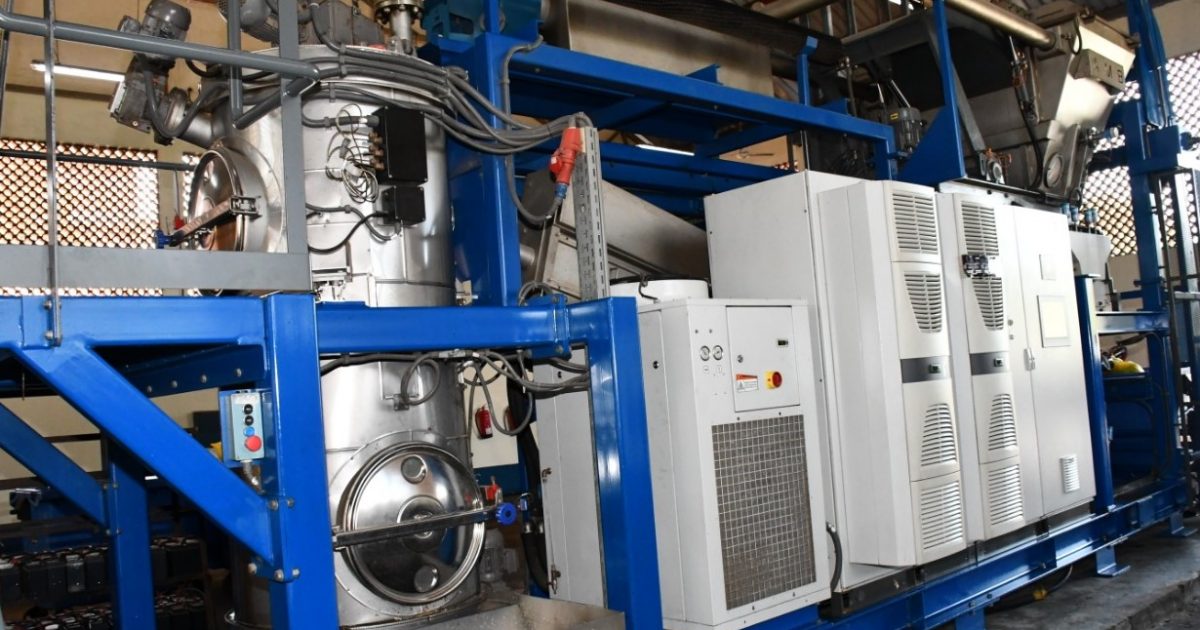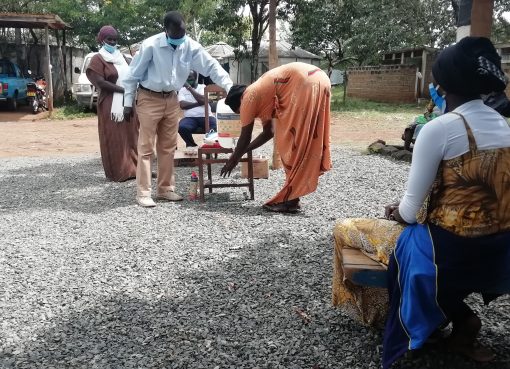Kenyatta National Hospital (KNH) has received medical waste microwaves that will see the end of open burning and crude dispels of health care waste in the facility.
The medical equipment will also go a long way towards reducing environmental and public health risks, considering that poor healthcare waste management, starting from generation to disposal, exposes the population to infectious, toxic, or carcinogenic material which is associated with new HIV infections, spread of hepatitis ‘B’ and ‘C’ and cancers.

The Government of Kenya, through the Ministry of Health, teamed up with the Government of Belgium to pilot non-burn technology microwaves and shredders for use in 10 high-volume public and private health-care facilities that include former provincial hospitals and the two national referral hospitals.
Health Cabinet Secretary (CS) Mutahi Kagwe, speaking when commissioning and handing over of the waste management equipment at KNH, said they have come at an important time as the Covid-19 pandemic has increased generation of waste due to the use of disposable masks and gloves in large quantities.
“Masks and gloves protect us but may be a source of infection if not thrown away in the designated disposal facilities,” the CS said.
He acknowledged that there has been a challenge in the disposal of these items, hence the need for innovation and additional resources in the management of infectious waste.
Kenya, he noted, has comprehensive national laws, policies and regulations relating to the environment and waste management in particular, including the Draft National E-Waste Management Strategy for the Health Sector.
“I am glad to note that through ‘Planning Alternative Tomorrows with Hope (PATH)’ and with the support of Centers for Disease Control (CDC) as well as other partners, the Ministry piloted the use of environmentally-friendly non burn technologies, autoclaves and shredders in six Level Four hospitals in the country,” he said.
Kagwe explained that the main mode of health care waste treatment in Kenya has been diesel-fired incinerators prescribed for both high and low volume health facilities, saying that in most cases, the methods do not meet the criteria set under the Waste Management Regulations 2006 and the Stockholm Convention of 2004 on Unintended Persistent Organic Pollutants (UPOPS) that aims at eliminating the production and use of persistent organic pollutants.
The completion of the pilot phase in the 10 counties, the CS said is an important milestone as it serves as a benchmark for future expansion.
“I am happy that preparations for Phase Two of the project are at an advanced stage and will be implemented in 15 counties soon”, he said, adding that the project would not have been possible without the concerted efforts of partners and the technical staff from both national and county governments.
He urged those receiving the equipment’s to oversee its proper operation and maintenance, urging them to initiate and support efforts to set aside adequate funds to cater for healthcare waste management in all health facilities in the Country.
“County Governments should encourage a pooled system of waste management amongst health facilities to cut on costs. As National Government we support calls for enhanced collaboration and partnerships to intensify actions that promote waste avoidance, waste minimization, recycling, recovery and reuse,” Kagwe said.
By Wangari Ndirangu





